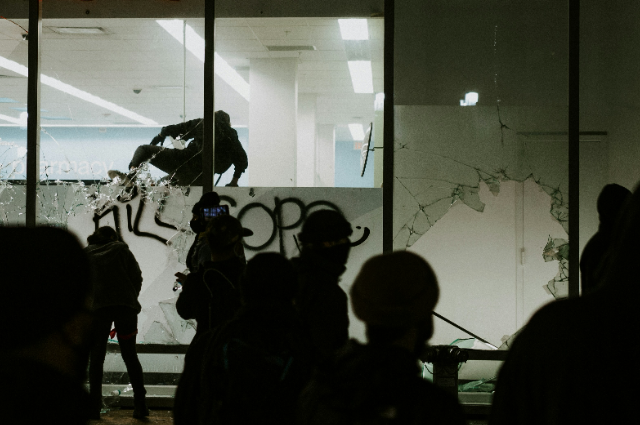
Photo by Gabe Pierce on Unsplash
Context to the Operation
Bangladesh police had filed a report on the complaint that 1,769 communal attacks had taken place (which was made by the Bangladesh Hindu Buddhist Unity Council) in the month of August 2024, which was after the then Prime Minister Sheikh Hasina resigned and fled the country. The Bangladesh Police had retorted with the argument that the majority of the cases mentioned were “not communally motivated” and had “political” overtones.
The breakdown of the government after Hasina’s governance and resignation affected the police administration system, and due to this, the Bangladesh Hindu Buddhist Unity Council took the steps to keep a record of “every act of violence against minority religious communities, especially the Hindus who were generally perceived to be supportive of the Awami League of Sheikh Hasina.”
The interim government of Muhummad Yunus, the chief adviser, had announced on January 11th, 2025, that it has a “zero tolerance against communal violence in Bangladesh.”
Protestors in Bangladesh had set the home of the founding leader of the country on fire, which took place on February 6th, 2025. His daughter, the former Prime Minister Sheikh Hasina who had fled after resignation, had spoken out on social media, gathering her supporters and appealing to the Awami League workers to fight the interim government led by Muhammad Yunus.
Muhammad Arefin, a protester, had said, “Since we, the students, have formed the government through revolution, we find it legitimate to demolish it.”
Many protestors sought Hasina’s execution for the deaths caused by the uprising against her. Hasina has, however, asked the UN to investigate the deaths. She has been accused of “overseeing extrajudicial killings and suppressing opposition voices during her 15-year rule.”
Operation Devil Hunt
Under Operation Devil Hunt, which took place overnight on Saturday, the security forces of Bangladesh managed to arrest 1,308 people. The interim government under Muhammad Yunus, that launched the operation, will continue it until “all devils” have been stopped. As further stated by the retired home affairs adviser lieutenant general, Jahangir Alam Chowdhury, “the operation will target those who are desperate to destabilize the country …it will continue until all the devils are rooted out.”
Amidst this political unrest, Gazipur faced immense violence breaking out on Friday night; mobs attacked the home of the former liberation war affairs minister Mozammel Haque, which harmed at least 14 people. 81 Awami League activists were arrested in Gazipur, where the violence began. The Anti-Discrimination Student Movement maintained that the members of their movement were attempting to “prevent looting at Haque’s house when miscreants attacked them.” That very evening, a student had been shot outside of the deputy commissioner’s office, and it was followed by protest that lasted a whole day denouncing the violence in Gazipur.
Jahangir Alam Chowdhury has announced that those individuals or groups responsible for the attacks on the students will be faced with the wrath of justice. The former Prime Minister Khaleda Zia’s Bangladesh Nationalist Party (BNP) has pushed the objective of curtailing “mob culture”. This hunt is yet to continue.
